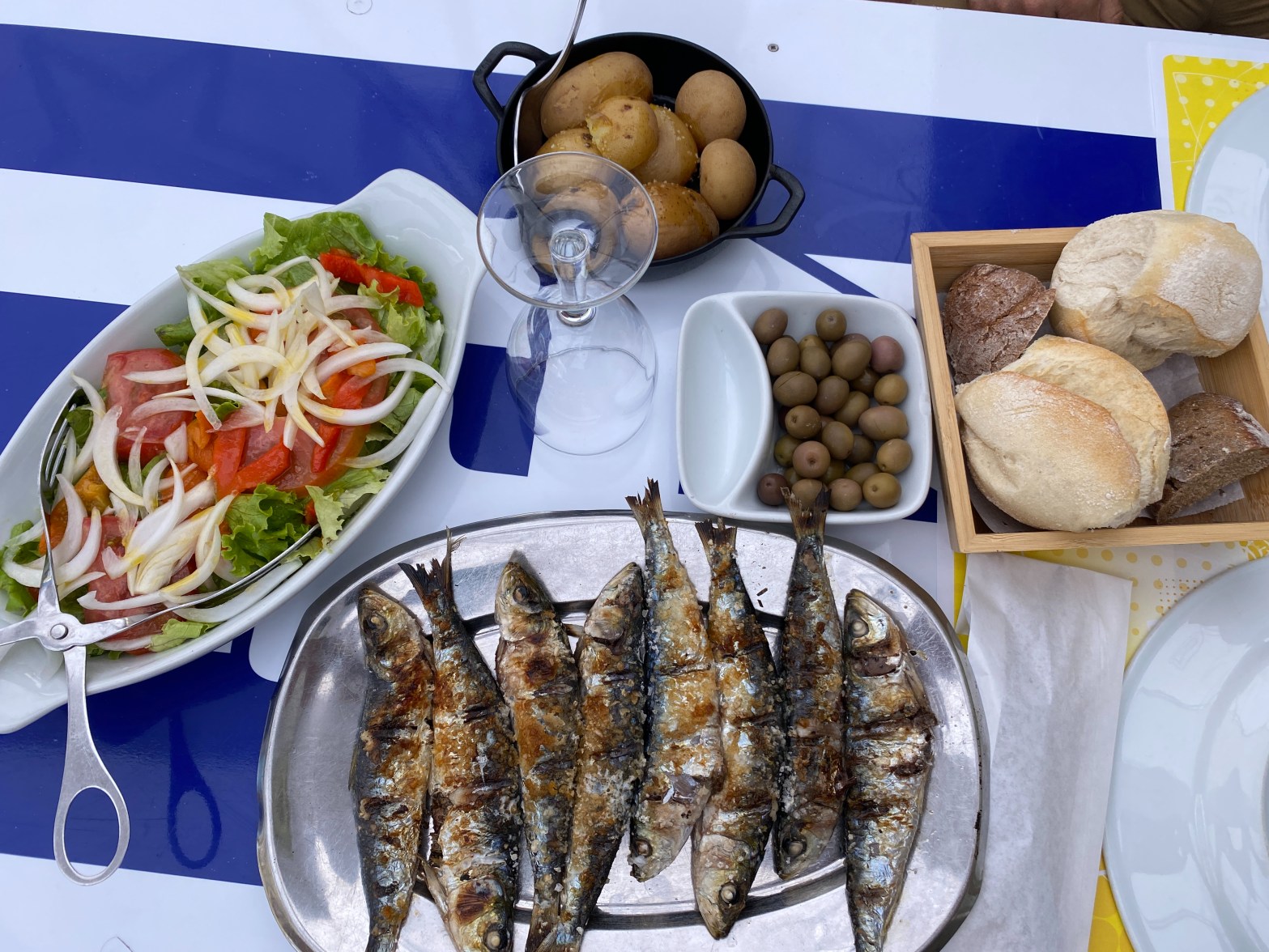While on sabbatical two years ago, I found myself sick with COVID, canceled plans, and an extended stay in Porto, Portugal because I could not fly home. By the grace of God, the Air BnB that I had rented was the property of a lovely couple who took hospitality very seriously. They left me a basket of plums from their garden, Portuguese tarts, and maps of the city when I arrived, but when I got sick, they brought me groceries and left a basket of flowers and food from their garden outside the front door, and offered to go get me any medicine I needed. And although I was sick and alone in a foreign country, because of their kindness and compassion, I did not feel alone.
When I finally tested negative and was able to book my flight home, they insisted on taking me to the train station and to show me a bit of their city along the way. They took me to a gorgeous overlook with the coastline of Porto and the Atlantic Ocean lapping at the rocky beaches, we drove along the Douro River, and then, they wanted me to get to experience the traditional Porto street food. It was days before the Festival of Saint Peter, the patron saint of Porto, and the traditional meal of grilled sardines, boiled potatoes, and olives were everywhere. As we walked along the cobbled streets, the bright decorations for the coming festival began to decorate the outside of houses and businesses. We sat at a restaurant with tables outside and he asked me how many sardines I would like to eat, and I said, probably one? He said, no, at least three. I said okay, three. We talked about their favorite hobby, octopus fishing, about their adult children, about their history and experience with the church as divorced people who cannot marry each other in the eyes of their community. I deeply loved this meal of three salty whole grilled sardines with heads and eyeballs and bones and all, because it was in this conversation and in this meal that I truly came to know Jesus.
On this third Sunday of Easter, we hear the story of Jesus eating with his disciples, and reading it reminded me of this time in Porto with my new friends and the meal we shared. The story we hear is such a common story that even our collect for the day tells us that Jesus is known to them in the breaking of the bread; that before he eats with them, they think he is but a ghost. But in Luke’s telling of this story, it is not in the breaking of the bread that Jesus is known to the disciples, but in the breaking of the broiled fish. He points to the scars on his hands, eats the fish, and talks about repentance and forgiveness of sins as if nothing has changed as if he wasn’t brutally murdered and divinely resurrected just days before.
These 40 days before Christ ascends to heaven after the resurrection has to be confusing to the disciples. Imagine the emotional rollercoaster. Just three weeks ago, Jesus was washing their feet at the last supper, now here he is, they legitimately fear that he is a ghost, when he proves that he is not, he sits down with them, eats a bit of fish, and talks about things like normal. And I think the way Jesus begins this interaction in Luke’s account needs to take up some space in our imagination today. When he approaches them, and he can sense their fear that he is a ghost, he asks, “Why are you frightened? Why do doubts arise in your hearts?”
One of things from which I am trying to continually rehab is sarcastic Jesus. I don’t know how I came in my own understanding of Jesus’ tone and intent to read into his words such judgement and vitriol. But in passages like this, on first reading, I tend to hear it as sarcastic judgment from Jesus.
But the disciples have a lot to be afraid of, and there are a lot of reasons for doubts to arise, and I don’t think that Jesus is dismissing their very real and human experience of the past month. They have been through the unimaginable and what Christians for over 2,000 years have been wrestling with as we walk through Holy Week and celebrate Easter. What if Jesus was not just dismissing their doubts and fears but was genuinely asking. What if James named concern over the practicality of caring for others in the reality of the current political context? What if Matthew was worried about the very real financial burden of a life that gives more than it earns? What if Peter was worried about how forgiveness would and could impact relationships if it’s needed over and over and over again? In my own anxiety, naming what I am afraid of is a tool that I have learned through therapy that helps me move through life, to be able to take action when needed, and I wonder if this is perhaps, at least in part, what Jesus is doing for and with the disciples this day.
In a world where the economy of attention is a very real thing, there may be no greater gift than to known another person. To know and to be known is one of the best and brightest feelings, and I think that in our gospel lesson we see why. Jesus comes to the disciples, he knows these friends of his and he asks them why they are afraid, and then in the sharing of some broiled fish, he is known by them. It is so simple and so radical, this ideal of being known and knowing others; this idea of sharing a meal and sharing communion, but it is what we are called to. We are called to communion not just with God, but with each other, and it is in the breaking of the bread that we find that knowing and that courage to be known. Thanks be to God.
A sermon delivered to the people of Christ Episcopal Church in Bowling Green, Kentucky for Easter 3B, Luke 24:36b-48, on Sunday, April 14, 2024.

